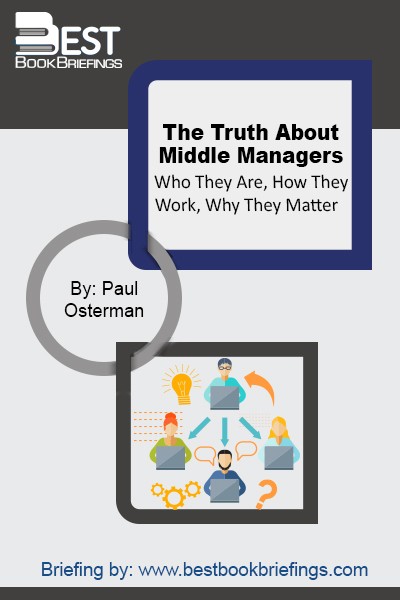The Nature of Managerial Work
Editorial Review
The quantity of work to be done, or that the manager chooses to do, during the day is substantial and the pace is unrelenting. Why do managers adopt this pace and workload? One major reason is the inherently open-ended nature of the job. The manager must always keep going, never sure when he has succeeded, never sure when his whole organization may come down around him because of some miscalculation. As a result, the manager is a person with a perpetual preoccupation. He can never be free to forget his job, and he never has the pleasure of knowing, even temporarily, that there is nothing else he can do. No matter what kind of managerial job he has, he always carries the nagging suspicion that he might be able to contribute just a little bit more. Hence he assumes an unrelenting pace in his work.
Book Reviews
Books on Related Topics

Who Are Middle Managers? No one has a job title “Middle Manager.” Who then are middle managers? And how do we distinguish them from those at the top? It is known that senior management makes the decisions that set the organization’s course, whereas middle management interprets and executes those decisions. Middle

A half century ago, Peter Drucker put management on the map. Leadership has since pushed it off the map. We are now inundated with stories about the grand successes and even grander failures of the great leaders. But we have yet to come to grips with the simple realities of being

Containing twenty-six selections, The Essential Drucker covers the basic principles and concerns of management and its problems, challenges, and opportunities, giving managers, executives, and professionals the tools to perform the tasks that the economy and society of tomorrow will demand of them.

Management guru Peter Drucker widely regarded as the father of modern management. During his remarkable life and career, he inspired countless business and political leaders. Drucker's key business tents include: Serve the customer: The purpose of a business is to create and serve a customer. Act, don't just talk: Management takes hard work,





